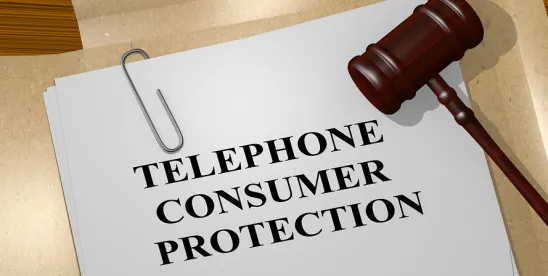New year. Same bad case law.
Those of you who have attended my shows have heard me explain that the majority rule right now is that mere click and pause allegations–i.e. allegations that a plaintiff heard a click and a pause before a live individual joined the line–are sufficient to allege ATDS usage for TCPA purposes.
This is seemingly impossible post-Facebook. The Supreme Court has held that only random or sequential number generation usage in connection with the storage or production of telephone numbers constitutes ATDS usage. But Courts have been extremely liberal in applying this rule at the pleadings stage.
Here is another example.
In Garcia v. Case No. Pro Custom Solar Llc, 4:21-CV-00392, 2022 U.S. Dist. LEXIS 4445 (E.D. Tex. January 10, 2022) the Defendant moved to dismiss a TCPA complaint’s ATDS claim. The Court held that allegations the called party encountered a click and pause at the time he answered were sufficient to state a claim:
At this juncture, the Court need not decide whether the dialing system had the present or the future capacity to dial numbers in a random or sequential fashion…. no plaintiff will have personal knowledge of the defendant’s telephone system at the pleadings stage. For this reason, Plaintiff need only plead sufficient facts to proceed with discovery, at which time he will have the opportunity to discover the precise technology that was used at the time of the alleged violations….Here, Plaintiff has alleged receipt of three phone calls, each of which began with a pause, and Plaintiff has alleged that, based on these pauses, the “dialing system used by Defendant to call Plaintiff has the present and/or future capacity to dial numbers in a random and/or sequential fashion” This is all he need allege at this stage.
No good.
Obviously rulings like these continue to open the door to ATDS TCPA class actions, which should have been shut cold by Facebook. And the difference between a dismissal at the pleadings stage and a dismissal at the MSJ phase–which should still be in the offing for many of these suits–is about $250-300k out of the Defendant’s pocket.
So decisions like Garcia continue to enable shakedown ATDS lawsuits–the Plaintiff’s counsel knows full well that the case is likely bound for the garbage heap. But they also know the Defendant will have to spend a ton of dough to get to the evidentiary judgment that will end the case. So they file and then make a demand that is lower than the cost of defense but infinitely higher than the case is “worth.”
Gross.
Unrelated, my clients still haven’t had to face a single ATDS claim since Facebook. For some reason the Plaintiff’s bar just doesn’t seem interesting in pursuing these cases when the Czar is involved. I wonder why.
We’ll keep an eye on all of this. And for any of my new friends/followers–be sure to keep an eye on the Facebook Ruling Resource Page for a complete list of all post-Facebook ATDS cases. I will be updated the page soon to reorganize the decisions now that we are achieving critical mass.




 />i
/>i

